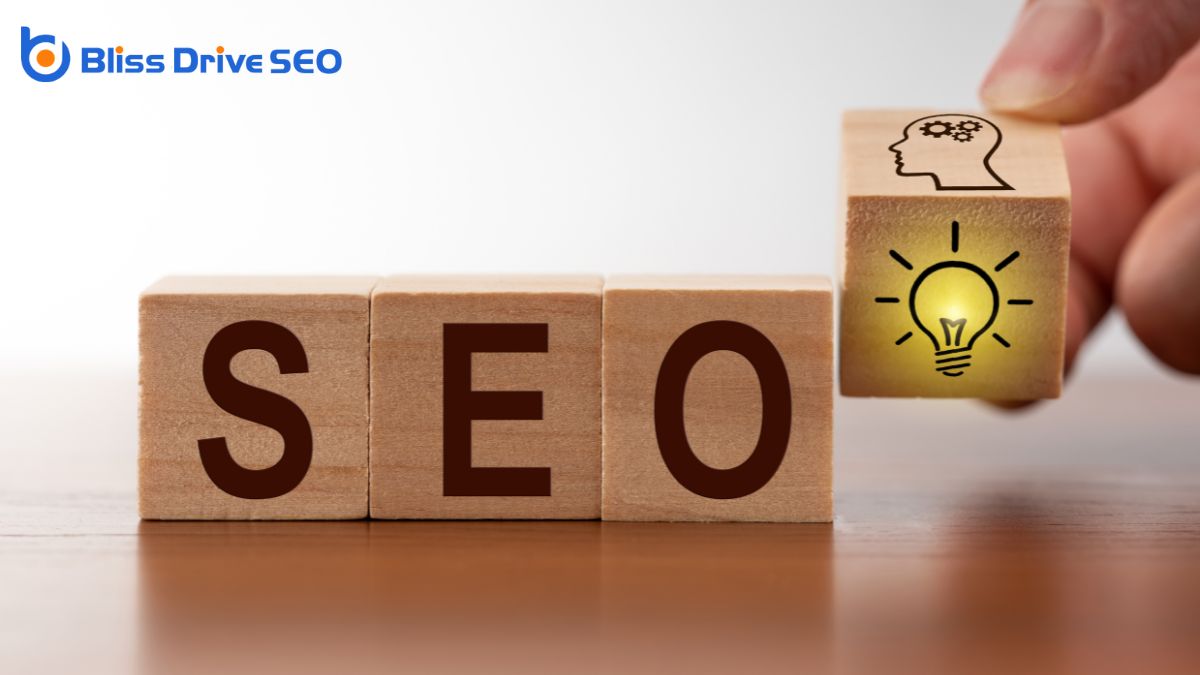Digital Marketing Services
Learn More About Us

When you're considering the cost of hiring an SEO person, you'll encounter a range of pricing structures influenced by various factors. You might wonder how an expert's experience and your project scope impact costs. Geographic location and whether you choose a freelancer or an agency can also play a role. Are you looking for hourly rates or a monthly retainer? Each choice affects your budget, but is it worth it? As you explore these considerations, the real question remains: how do you guarantee you're getting the best value for your investment?
When it comes to determining the cost of an SEO professional, several key factors come into play. First, consider the extent of your project. Are you looking for a thorough overhaul of your SEO strategy, or do you need help with specific tasks like keyword researchThe process of finding and analyzing search terms that people enter into search engines. or on-page optimizationImproving individual webpages to rank higher and earn more relevant traffic in search engines.? The breadth and depth of the work required will significantly impact the price.
Second, think about the industry you're in. Some sectors are more competitive than others, requiring more intensive SEO efforts to achieve desired rankingsThe position at which a website appears in the SERP.. If you're in a nicheA specific segment of the market targeted by affiliates to promote products or services. market with less competition, you mightn't need to invest as heavily in SEO services.
Third, geographic location matters. SEO pricing can vary depending on where you are. Hiring someone locally might cost more or less than someone from another region, depending on the local market conditions.

How does the experience and expertise of an SEO professional affect their cost? If you're considering hiring an SEO expert, you'll notice that those with more experience and deeper expertise often charge higher rates. Why is that?
Experience brings a nuanced understanding of search engine algorithms, proven strategies, and the ability to swiftly adapt to changes. An experienced SEO professional has likely faced a variety of challenges and successfully navigated them, which can be invaluable for your business.
Expertise, on the other hand, involves specialized knowledge in specific areas of SEO, such as technical SEOOptimizing the server and website structure to improve search engine crawling and indexing., content optimizationImproving content to enhance its performance and effectiveness., or link buildingThe process of acquiring backlinks from other websites.. Professionals with deep expertise can tailor strategies that directly align with your business goals, leading to more efficient and effective outcomes. This tailored approach often results in a higher ROI, which justifies their higher fees.
When considering cost, think about the value a seasoned professional brings. They're not just executing tasks; they're crafting strategies that can greatly enhance your online presence. Less experienced SEO practitioners might be cheaper, but they may lack the refined skills and insights that come with years of practice and specialization.
When considering the cost of hiring an SEO person, you'll need to assess your project's extent and complexity. A broader range of tasks can have a notable impact on pricing, as more thorough efforts require additional time and resources.
The more complex the project, the higher the cost since intricate strategies demand specialized skills and expertise.
The diversity of tasks in an SEO project greatly affects the cost, as each additional element can add layers of complexity. When you consider hiring an SEO professional, the range of tasks they need to perform plays a significant role in determining their fee. SEO isn't just about adding keywordsWords or phrases that users type into search engines to find information. and hoping for the best. It's a thorough strategy involving multiple components that can influence pricing.
Here's a breakdown of tasks that might impact costs:
Each task requires a different skill set and level of effort, impacting the overall cost of the SEO project. Understanding these factors helps you assess what services you need and plan your budget accordingly.
In considering the complexity of an SEO project, you'll find that the scope and intricacy of tasks greatly influence the pricing. When your project involves basic tasks like keyword research or optimizing meta tagsHTML tags that provide information about a web page to search engines and visitors., costs might remain relatively low. However, as you delve into more complex areas such as technical SEO audits, content strategyA plan for creating, publishing, and managing content to meet business goals. development, or extensive link-building campaigns, the price naturally increases. Each of these tasks requires different levels of expertise and time commitment.
Complex projects often need a custom strategy tailored to your specific needs. This could involve multiple phases, from initial analysis to ongoing adjustments and reporting. The more tailored and detailed the approach, the higher the cost. If your website has many pages, diverse product lines, or multiple target markets, expect the project scope to broaden, further increasing complexity and price.
Additionally, the competitive landscape of your industry plays a critical role. High competition demands more innovative and aggressive strategies, thereby raising costs.
When you're considering the cost of hiring an SEO person, geographic location plays a significant role. Regional salary variations mean that an SEO expert in New York might command a different rate than one in a smaller city.
Additionally, local market demand can influence competitive salaries, impacting your overall budget.
Salaries for SEO professionals can vary greatly depending on geographic location, and understanding these regional differences is important for both employers and job seekers. If you're looking to hire or work as an SEO expert, knowing how location affects salary can help you make informed decisions. Here are some key points to keep in mind:
Understanding these factors can guide you in setting or negotiating salaries. By keeping in mind the regional salary variations, you can make sure you're offering or receiving a fair compensation package that aligns with your location.
As you navigate the landscape of hiring an SEO professional, local market demand plays a pivotal role in shaping salary expectations. You'll notice that geographic location heavily influences how much you might pay.
In bustling cities like New York or San Francisco, where competition is fierce and businesses are abundant, the demand for skilled SEO experts is high. This often translates to higher salary requirements as professionals in these areas tend to command premium rates due to the cost of living and the competitive job market.
Conversely, if your business is located in a smaller town or city where the market isn't saturated with digital agencies or large corporations, you might find that SEO services are more affordable. The demand in these areas could be lower, allowing you to negotiate more favorable terms. However, it's essential to assess whether the local talent pool meets your business's specific needs.
In essence, understanding the local market demand helps you strategically budget for SEO services. It ensures you're not overpaying in a less competitive market or underestimating the cost in a high-demand area. This knowledge empowers you to make informed hiring decisions tailored to your geographic location.
Deciding between hiring a freelancer or an agency for your SEO needs can greatly impact your business's online presence. Each option has its pros and cons, and understanding them can help you make an informed decision. Freelancers typically offer flexibility and a personal touch, often working closely with you to tailor strategies to your specific needs. Agencies, on the other hand, provide a broader range of services, often bringing together a team of experts to tackle various aspects of SEO.
Here's a quick comparison to guide your decision:
Evaluate these factors to choose the best fit for your SEO goals.
When choosing between hourly and monthly rates for SEO services, it's important to take into account your budget and specific needs. Hourly rates can be beneficial if you have a short-term project or need occasional advice. They offer flexibility, letting you control costs by only paying for the hours you use. However, if your project requires ongoing attention, hourly rates might add up quickly.
On the other hand, monthly rates work well for businesses that require continuous SEO efforts. With a fixed monthly fee, you're assured consistent work and progress towards your SEO goals. This approach suits businesses that want to establish a long-term strategy and don't want to worry about fluctuating costs. Monthly packages often include a range of services, providing all-encompassing support in a predictable manner.
Consider the size and scope of your project when deciding between these options. If you're just starting or need minor tweaks, hourly might be the way to go. But if you're aiming for sustained growth and have a clear plan in mind, monthly rates could provide better value. Ultimately, the choice depends on aligning your financial capabilities with your SEO objectives.
Understanding the cost structure is just one part of managing your SEO budget, but knowing the specific services and their associated costs can help you make more informed decisions. SEO services vary widely, and the pricing structure reflects the complexity and scope of the work involved. Whether you're looking to increase your website traffic, improve your search engine rankings, or enhance your online presence, it's essential to understand what you're paying for.
Here's a breakdown of common SEO services and their costs:
Traversing the terrain of SEO expenses can be challenging, as industry-specific pricing often varies based on the distinct demands of different sectors.
For example, if you're in the e-commerce realm, you might encounter higher SEO expenses due to the competitive nature of online marketplaces. E-commerce SEO often necessitates more extensive keyword research, content creation, and technical SEO adjustments to guarantee high visibility and conversionThe completion of a desired action by a referred user, such as making a purchase or filling out a fo... rates.
In contrast, local businesses may find that their SEO costs are more reasonable. Local SEOOptimization strategies aimed at improving a website’s visibility in local search results. concentrates on geo-targeted strategies that can be less resource-intensive yet highly effective for attracting nearby customers. You'll likely need to optimize for local keywords, manage your Google My Business profile, and gather customer reviews.
In specialized industries like healthcare or finance, SEO can become more intricate and expensive. These sectors often require compliance with industry-specific regulations and guidelines, which means you might need to invest in experts familiar with these standards. Additionally, creating authoritative and trustworthy content is vital, further escalating expenses.
Ultimately, comprehending your industry's unique SEO requirements will help you distribute your budget effectively and select an SEO professional who can fulfill your specific needs.

Figuring out the return on investment (ROI)A measure of the profitability of an investment, calculated by dividing the net profit by the cost o... in SEO can feel challenging, but it's essential for evaluating the effectiveness of your strategies. When you know how to calculate ROI, you can make informed decisions about your SEO spending. Here's a straightforward approach to help you understand it better.
1. Track Your Costs: Start by identifying all the costs related to your SEO efforts. This includes hiring an SEO expert, tools, and any additional marketing expenses.
2. Measure Your Gains: Determine the increase in revenue directly attributable to your SEO activities. This might come from more traffic, higher conversion rates, or improved sales.
3. Calculate ROI: Use the formula:
\[
ext{ROI} = \left( rac{ext{Net Profit}}{ext{Investment Cost}} ight) imes 100
\]
Subtract your costs from your gains to find the net profit, then divide by the costs.
4. Evaluate and Adjust: Regularly assess your ROI to see if your SEO efforts are paying off. If not, tweak your strategies and investments to improve results.
When you're considering hiring an SEO professional, remember that costs can fluctuate based on several factors. Their experience, the project's scope, and your location play significant roles in pricing. You'll need to decide between freelancers and agencies and choose between hourly or monthly rates. Don't forget that specific services like content creation and link building can add to the cost. Ultimately, weigh these factors against the potential ROI to make sure you're making a sound investment.
